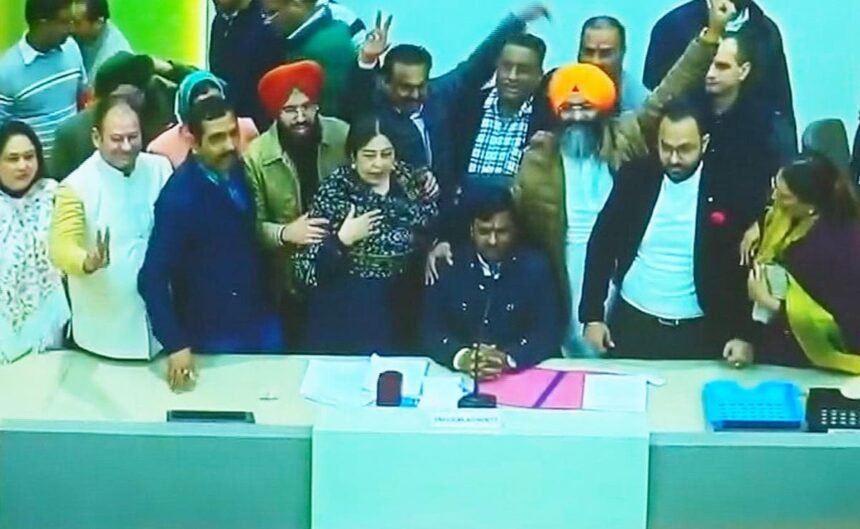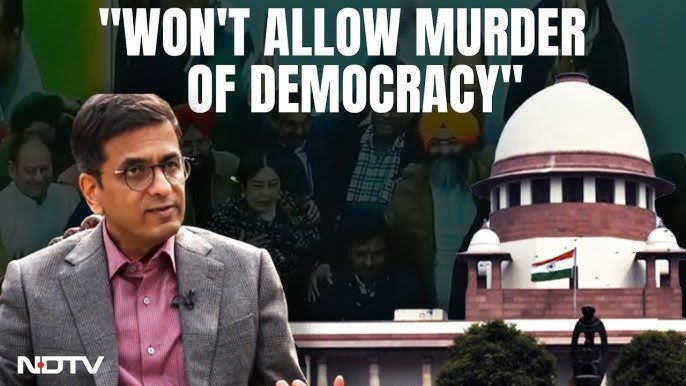Introduction
The recent Chandigarh Mayor elections have sparked significant controversy and legal action. Drawing attention from the highest judicial authority in India, the Supreme Court. The integrity of the electoral process has been called into question. With allegations of ballot tampering and electoral misconduct casting a shadow over the democratic process.
Allegations of Election Rigging
At the heart of the controversy lies the accusation that the Presiding Officer of the elections, Anil Masih, engaged in misconduct by allegedly tampering with ballot papers. These allegations have been vehemently denied by the authorities, but a video purportedly showing the officer spoiling the ballot papers has raised serious concerns about the fairness of the electoral process.
The Aam Aadmi Party (AAP). Which suffered defeat in the mayoral elections to the Bharatiya Janata Party (BJP). Has been at the forefront of the protests and legal challenges. AAP leaders have alleged that the eight votes declared invalid by Masih were in fact votes for their party’s candidate. They argue that had these votes been counted, the outcome of the elections would have been different.
Supreme Court’s Intervention
In response to these allegations. The Supreme Court has intervened, signaling its commitment to upholding the principles of democracy and ensuring free and fair elections. Chief Justice DY Chandrachud. While hearing the petition filed by AAP. Expressed grave concern over the conduct of the Returning Officer. Likening it to “the murder of democracy.” The court has ordered the preservation of all records related to the elections. Including ballot papers and videography. Through the Registrar General of Punjab and Haryana High Court.
The Supreme Court’s intervention underscores the importance of safeguarding the electoral process and maintaining public trust in democratic institutions. The integrity of elections is fundamental to the functioning of democracy. And any attempt to subvert this process must be thoroughly investigated and addressed.
The controversy surrounding the Chandigarh Mayor elections is not just about the outcome of a single electoral contest but goes to the heart of democratic principles and values. It raises questions about the conduct of electoral officials. The transparency of the electoral process. And the accountability of those entrusted with conducting elections.
The Supreme Court’s decision to intervene in the matter sends a strong message that electoral malpractice will not be tolerate and that those responsible will be held accountable. By ordering the preservation of election records and directing further investigation. The court has taken a decisive step towards ensuring that justice is serve and that the democratic rights of the people are protect.
AAP’s Protest and Demand
In addition to the legal proceedings, the controversy has also sparked public outrage and political turmoil. Protests led by AAP and Congress activists have demanded action against the alleged perpetrators of electoral misconduct and have called for the annulment of the election results.
The outcome of the legal proceedings and the subsequent actions taken by the authorities will have far-reaching implications for the future of democracy in Chandigarh and beyond. It is essential that the electoral process is transparent, fair, and free from any form of manipulation or interference.
The Supreme Court’s intervention in the Chandigarh Mayor elections is a reminder of the judiciary’s role as the guardian of democracy and the rule of law. It underscores the importance of independent and impartial institutions in upholding the principles of democracy and ensuring accountability and transparency in governance.
Also Read : BJP’s Victory in Chandigarh Mayoral Elections Sparks Controversy
Conclusion
As the legal proceedings unfold and the investigation progresses. It is imperative that all stakeholders, including political parties. Electoral officials, and civil society. Cooperate fully to uphold the integrity of the electoral process and uphold the principles of democracy. The people of Chandigarh deserve nothing less than a fair and transparent electoral process that reflects their will and respects their democratic rights.






